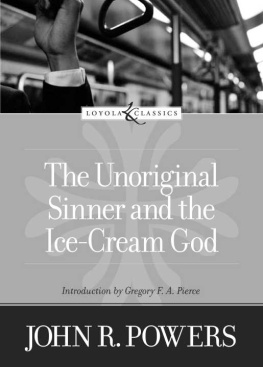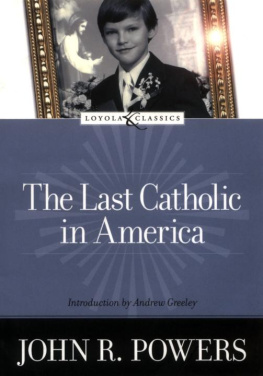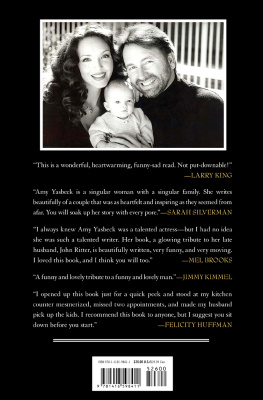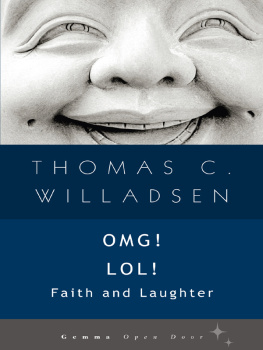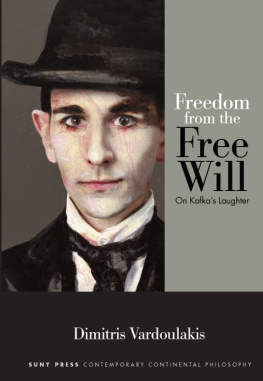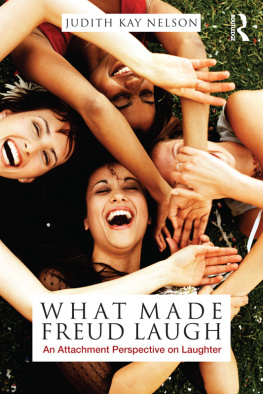The Unoriginal Sinner
and the Ice-Cream God
Books in the Loyola Classics Series
Catholics by Brian Moore
Cosmas or the Love of God by Pierre de Calan
Dear James by Jon Hassler
The Devil's Advocate by Morris L. West
Do Black Patent Leather Shoes Really Reflect Up? by John R. Powers
The Edge of Sadness by Edwin O'Connor
Helena by Evelyn Waugh
In This House ofBrede by Rumer Godden
The Keys of the Kingdom by A. J. Cronin
The Last Catholic in America by John R. Powers
Mr. Blue by Myles Connolly
North of Hope by Jon Hassler
Saint Francis by Nikos Kazantzakis
The Silver Chalice by Thomas B. Costain
Things As They Are by Paul Horgan
The Unoriginal Sinner and the Ice-Cream God by John R. Powers
Vipers' Tangle by Francois Mauriac
The Unoriginal
Sinner an the
Ice-Cream God
JOHN R. POWERS
Introduction by Gregory F. Augustine Pierce






Introduction
Gregory F. Augustine Pierce

Three things happened to young Catholic males in the 1960s. First, "our" president was shot while we were sitting in English class with Fr. Hoctor. Second, the Second Vatican Council changed the unchangeable, that is, the church. Third, Lyndon Johnson, and then Richard Nixon, wanted to send us to Vietnam to kill or be killed. (Plus we never did make it to the major leagues as professional baseball players.)
What we lost was our innocence, and we never got it back. What we didn't lose was our sense of humor. In fact, it was honed on our disillusionment.
John R. Powers captured those years in The Unoriginal Sinner and the Ice-Cream God (1977), a novel that will surprise those who come looking for The Last Catholic in America (1973) or Do Patent Leather Shoes Really Reflect Up? (1975)-Powers's earlier and more famous books, made even more so when they became the basis for a Broadway musical. Unoriginal Sinner is darker, yet it still makes us laugh. Tim Conroy, the main character and narrator, is closer in spirit to Salinger's Holden Caulfield than he is to Powers's Eddie Ryan, star of his previous two books-despite the fact that Conroy prowled the same Chicago neighborhoods that Ryan inhabited.
The Catholicism of Unoriginal Sinner is not so much nostalgic as it is deep background. Tim Conroy got the message that the church he grew up in was gone forever; he just never got up to speed on the church that replaced it. He never goes to Mass, much less confession. There are no overbearing priests or nuns in his life anymore. Family is irrelevant to the story-he doesn't have an alcoholic father or long-suffering mother, and his siblings never make an appearance.
Of course, you could take the boy out of Church back then, but you couldn't take the Church out of the boy. Conroy is fascinated by the "big" questions: Does God exist, and if so what is he like and does he accept collect calls? Conroy says: "I hope there's a God. If there was an election tomorrow on whether there should be a God, I'd vote yes. Living forever sounds like a good deal. But just because I want there to be a God doesn't mean there is one. Very few people, if they're honest with themselves, really believe there's a God the way, for instance, they believe there's another side of the world. Very few people."
This novel is about isolated young men who are trying to figure out what the point of life might be-if there is a point to it at all. Turning a jaundiced eye to this world, however, did not prevent Powers from nailing it especially the young adult male part. Draft dodging; trying (mostly unsuccessfully) to get laid; refusing to take studies or career seriously; showering contempt on politicians, businesspeople, educators, and adults in general-these were the daily rituals of Catholic guys who went to college in the late sixties.
He encounters an auto mechanic named only Caepan who becomes his own personal theologian, answering questions Conroy puts to God. This literary invention alone makes this book worth reading, because for perhaps the first time in history God has a South Side Chicago sense of humor. For example:
Conroy:
First of all, just because someone works for me, you shouldn't believe everything they say. I've never been that fussy about who I hire.
Now contrary to what some of these people might have said, I find being God a lot of fun. I'm very rich, you know. I own everything. I enjoy being alive and so I always have been.
I like to create things: mountains, forests, oceans, people.
People are the toughest things of all to create. They're so minute and delicate. Just the wrong touch of this or that and you can ruin one of them.
Having people around makes me feel good. Mountains, forests, oceans, and animals don't tell me how important I am. Well, they do, but not in as nice a way as people. Let's face it, you can't have a good time at a party when you're the only one there. I need you.
Signed: God
Or again:
Conroy:
All religions have worked hard to give you the impression that I'm a stiff; the kind of guy you'd never invite to a party.
Walk into a church with a friend and you find yourself using a tone of voice that you use only at a funeral home in front of an open casket. I could never understand why human silence is a sign of respect while the sound of a human voice, saying the usual things, is supposedly a sign of disrespect. And the most disrespectful thing that a person can do in a house of God, according to those who think they own them, is to laugh.
I like laughter and the people who do it; from the twitterers to the chucklers to those whose laughter roars out in a gallop of explosions. To me, laughter is taking a bite out of life and saying, "Just right."
Signed: God
Unoriginal Sinner is full of late-sixties Chicago characters: Weatherly, the professional student who is constantly scheming about avoiding the draft; Leonard, the only son of Jewish grocers, who was programmed from childhood to go to medical school; Carol ("why buy the cow when the milk is free") Foltz; Charlie Day, the best freight-car painter in history. And above all, there is Sarah Faber, the perfect Catholic girl that Conroy cannot bring himself to marry.
In fact, Conroy cannot commit himself to much of anything. It is almost as if his cynicism is more important to him than life itself. As long as he can crack a joke or put someone else down, he doesn't have to face the fact that he has thrown out the baby with the bathwater. His friend Leonard tells him, "You know, Tim, I don't think most people need a reason to get up in the morning. They get up out of force of habit. They get up because the alternative, being dead, isn't too thrilling either. But I need a reason. Living just because I happen to be alive isn't enough for me. I know that's dumb, but that's the way it is."

